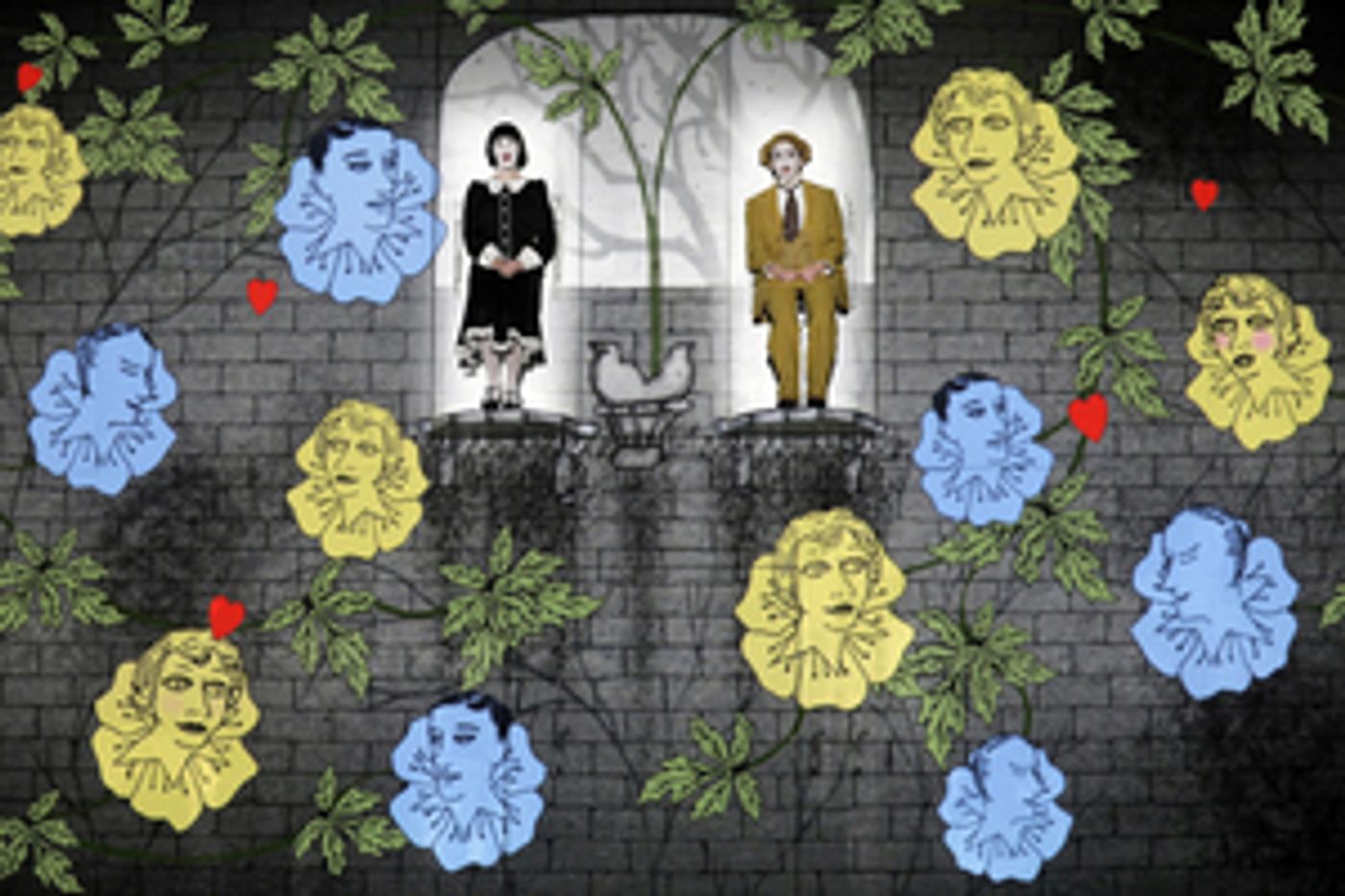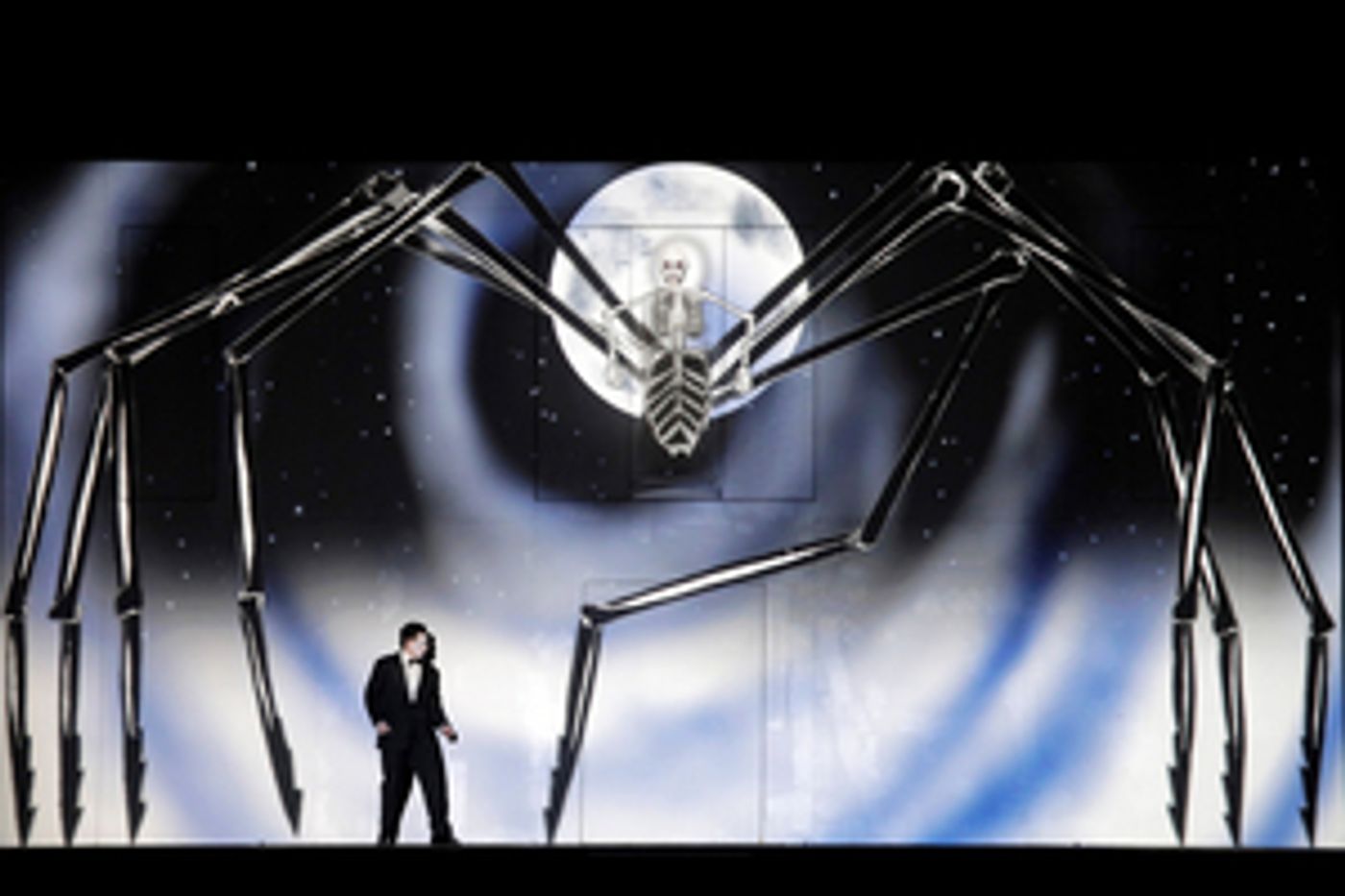Review: THE MAGIC FLUTE at Dorothy Chandler Pavilion


On Saturday evening, November 16, 2019, Los Angeles Opera presented Wolfgang Amadeus Mozart and Emanuel Schikaneder's 1791 singspiel, The Magic Flute. The unusual production, which involved the appearance of screens reminiscent of 1920s silent films, was originally devised by Barrie Kosky, Suzanne Andrade, and Paul Barritt for Berlin's Komische Oper.
Kosky took the idea of a fairy tale opera that mentions animals together with monsters and, thanks to the magic of animation technology and opera house ingenuity, his team constructed a spectacle that took over the entire piece and its intentions. Dogs, wolves, and monkeys strained at leashes and pranced across the onstage screen while numerous birds and insects flew in formation and Papageno's cat turned aerial cartwheels.
Since the original singspiel had spoken dialogue with no accompaniment, pianist Peter Walsh played passages from Mozart Fantasias in C Minor, K 475, and D Minor, K 397, on the fortepiano as necessary interludes to accompany story-line translationWorking with animation has its limits, however. The singers were often placed in stationary positions so that the animation could occur around them. When the Queen of the Night asked Prince Tamino to find her daughter, she was high above the prince in the form of a huge spider whose legs threatened him as he tried to move across the stage floor.
Costume Designer Esther Bialas dressed most of the artists in dark colors that stood out against the light screens. Papageno wore a Light Brown suit and hat that made him into a Buster Keaton look-alike. Papagena wore sequined pink. Tamino's suit was black as was Pamina's dress except for a white ruffle at the bottom of her skirt. Later, she wore a long dress with a bustle. The audience only saw the upper half of the Queen of the Night. The lower half of her body was covered by the animation that made her a more than 20-feet-tall black-legged spider.
Although no singer was ever far upstage, Set Designer Bialas gave listeners flat screens instead of rooms and she did not supply any box-like scenic constructions that would throw the unique sounds, colors, and overtones of these specially-chosen voices out into the auditorium. It was a most interesting choice for opera.
Theo Hoffman was a boyish Papageno who lacked most of the "manly" virtues such as courage and fortitude. His character wanted merely good food, strong drink, and a beautiful girlfriend. He sang of his desires with excellent Mozartean style, bronzed lyrical tones and a smooth legato. I would like to see him perform this role in a setting that would allow him more freedom of movement but I enjoyed watching him in this show with his virtual cat and other animated characters.
A principal soloist at the Bolshoi Opera, Bogdan Volkov is a lyric tenor with a warm, inviting sound. His Tamino oozed with everything that Papageno lacked: spiritual strength, the ability to overcome temptation, and an appreciation of the finer things in life. Czech soprano Zuzana Marková sang Pamina with a rather dramatic sound that easily overcame the constricts required by the animation screens. Her character grew from a frightened young girl to a poised and confident young woman who would make a good consort for Tamino.
Kosky's Sarastro, Ildebrando D'Arcangelo, was a black clad leader in a Lincoln-styled top hat. Although his bass tones did not boom as much as they usually do, he was an all-knowing father who brought sunlight onto the stage. So Young Park, a veteran Queen of the Night, showed prodigious technical facility with runs and trills. Unfortunately, this time one or two of her highest notes were a bit squally, but her characterization as the spider was fascinating.
Kosky's three ladies were stylish demoiselles from the Flapper Age. Their sound was gorgeous on the top thanks to soprano Erica Petrocelli. Mezzo-soprano Vivien Shotwell was always audible but mezzo Taylor Raven's low notes were hard to hear. Sarah Vautour was a sweet-voiced Papagena and Frederick Ballentine a vicious Monostatos. As the Speaker and the Armed Men, Michael J.Hawk, Robert Stahley, and Steve Pence sang with strong masculine tones. The voices of David Kakuk, Thomas Quinn Fagan, and Anika Ericson blended beautifully as the Three Spirits.
This was another of those wonderful performances where conductor James Conlon brings out Mozart sonorities that many of us did not realize were in the work. His tempi were brisk, neither too fast nor too slow. He led the orchestra in a luminous and translucent rendition of this well loved opera and the sold-out house thanked him with thunderous applause. Opera lovers can catch The Magic Flute at the Dorothy Chandler Pavilion on Thursday November 21st, Saturday the 23rd, Sunday, December 1st, Sunday the 12th, and Thursday the 15th.
Photo: Cory Weaver for Los Angeles Opera
Reader Reviews

Videos

